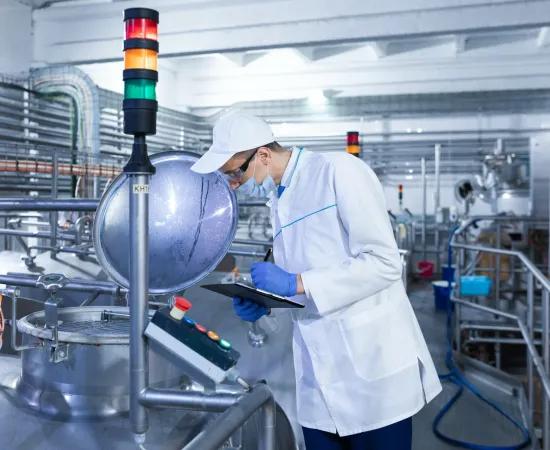
Standards Cell Industry 4.0
Industry 4.0, or Smart Manufacturing is a subject of considerable debate. But, what’s new on the standardisation front? What does the future hold in this specific field? Would you like to find out which standards are of particular concern to your own activity? Are you keen to share your subjects of interest and your views within the Technical Committees covered by the Standards Cell?
Industrial firms all want to improve their level of reliability, their modularity, their flexibility and the interconnections between their products and their production systems. They also look for increasingly intelligent and increasingly flexible production systems, in order to manufacture highly tailored products. It is also generally accepted that distance monitoring of produced goods and the availability of large quantities of information offer businesses potential for launching new services and business models.
Industry 4.0 is considered as a solution for the above requirements.
The challenges and stakes of Industry 4.0
The first challenge consists in associating the physical and digital worlds throughout an ‘asset’s’ life cycle. Stakes include: interoperability or the capacity to integrate and synchronise a group of elements (products, machines, processes, factory, virtual models, etc.) that evolve in an independent manner; management of the complexity and the quantity of data and cybersecurity within strongly converging IT (information technology) / OT (operational technology) environments.
The second challenge comes from the consideration of the importance of the human factor in production systems, via several themes: physical and cognitive assistance, ergonomics, knowledge and skills adaptation, time and space organisation. Currently promoted technologies include collaborative robotics, augmented reality, etc. Stakes include issues pertaining to health and safety at work (accidents, fatigue, stress, MSDs, etc.)
Solutions developed by machine manufacturers and integrators must be in line with the needs of smart manufacturing and be capable of easy integration within a modular and configurable production system, without obliging the customer to resort to the use of a proprietary interface. Solutions should be developed based on ‘safety & security by design’ principles.
Missions of the Industry 4.0 Standards Cell
With support from Federal Public Service Economy, Sirris initiated the Industry 4.0 Standards Cell, in order to inform Belgian businesses – essentially SMEs – of existing standards and those pending publication.
The Industry 4.0 Standards Cell’s mission is:
- To monitor work on the elaboration of standards required for the implementation of intelligent production (IEC TC65, ISO TC184, ISO TC299 but also OPC Foundation and Umati)
- To increase business awareness of the concepts and technologies involved in intelligent production, and the standards to follow, together with their evolution via seminars, publications, and individual consultancy services
- To support and guide you in the application of such standards, which are a response to the aforementioned stakes and challenges, whether you are a manufacturer of machines or of automated manufacturing cells, or are a system or a manufacturing integrator.
- To promote your interests and your views within Technical Committees covered by the Standards Cell

Frequently Asked Questions
- How do ISO and IEC define ‘Industry 4.0’?
- Is there a unified reference model architecture for the concept of ‘Smart manufacturing’?
- What major stakes and challenges does smart manufacturing imply?
- How can ISO and IEC standards help to overcome such challenges?
- What standard ecosystem exists for smart manufacturing?
- Is there a standards catalogue for smart manufacturing?
- What standards are monitored on a priority basis by the Industry 4.0 Standards Cell?

